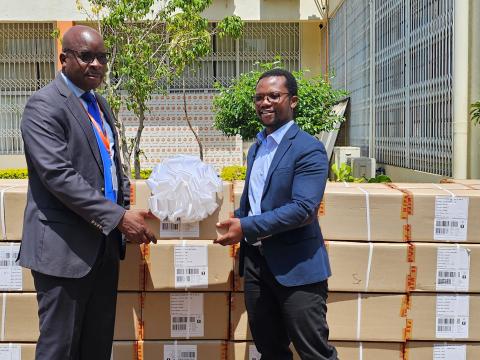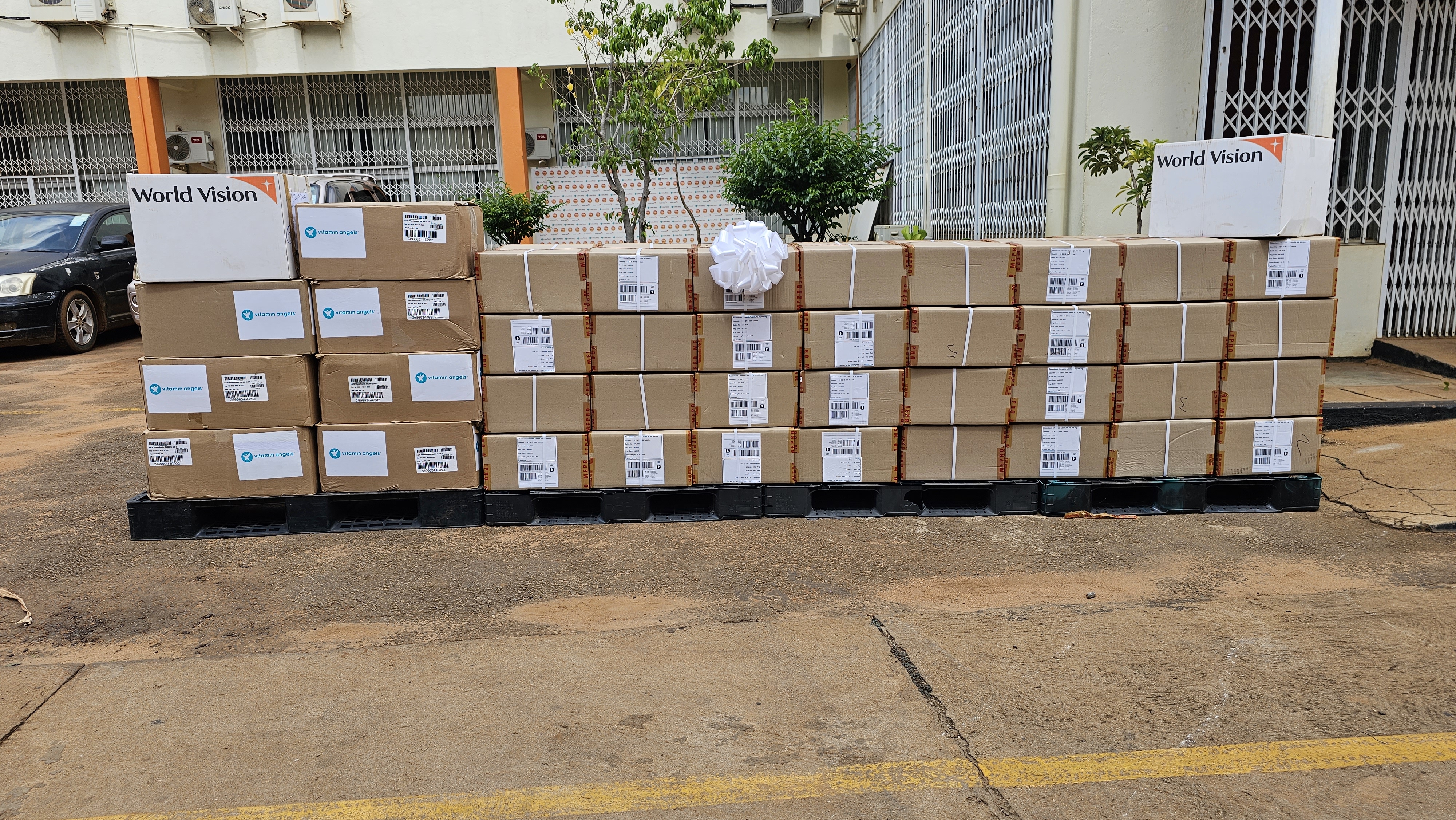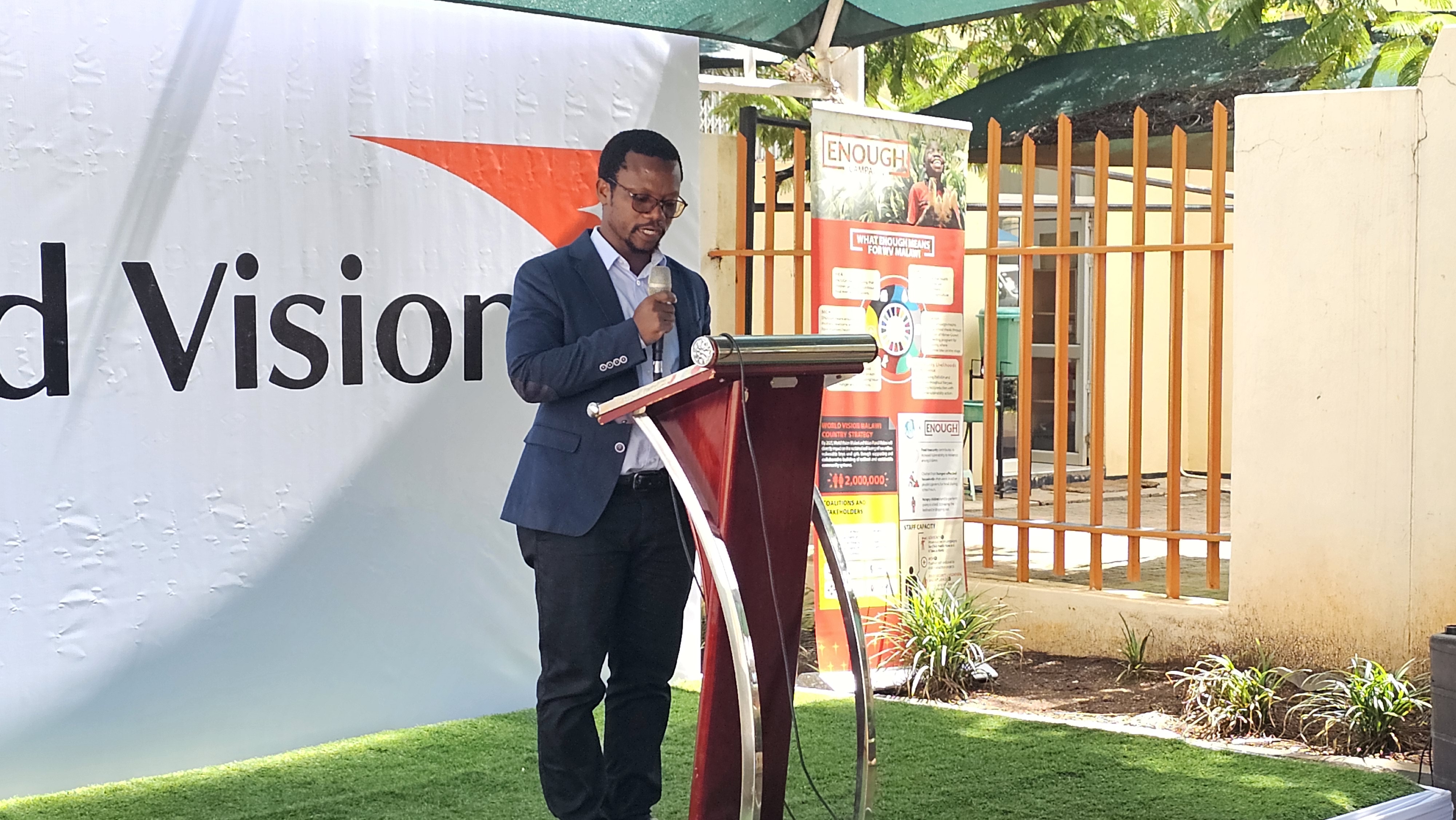World Vision Malawi supports government with US$2,261 medical supplies.

By: Trinity Kubalasa
Communications and External Engagement Manager, Malawi.
World Vision Malawi has donated US$2.26 million (MK3.7 million) worth of medical supplies to the Ministry of Health, to support the fight against parasitic infections and Vitamin A deficiency diseases.
During the recent handover ceremony held in Lilongwe, Francis Dube, the National Director of World Vision Malawi, emphasized the organization's commitment to enhancing the health and nutritional well-being of vulnerable children.
"Our partnership with the Ministry of Health is aimed at bolstering the healthcare system's capacity. This includes providing essential services and delivering proper supplements or medications to children and the elderly seeking medical care," he emphasized.

Dube highlighted the prevalence of micronutrient deficiencies among children in the country, particularly Vitamin A deficiency, underscoring the urgent need for concerted efforts to address this gap. The donated medical supplies include Albendazole, crucial for treating worm infestations that pose a significant threat to children's health, as well as Vitamin A supplements, essential for managing children's nutritional status.
In addition, Dube announced World Vision Malawi's upcoming launch of the ENOUGH campaign, to comprehensively combat child hunger and malnutrition. He stressed the critical role of micronutrients in alleviating hidden hunger among children.
He also urged the government to prioritize resources for health, social protection, and food production systems, emphasizing the importance of a holistic approach towards effectively tackling hunger and malnutrition.
Mike Chisema, Deputy Director of Community and Promotive Health Services at the Ministry of Health, praised World Vision Malawi's ongoing support in safeguarding children against parasitic infections and Vitamin A deficiency diseases. He noted the significant reduction in Vitamin A deficiencies, achieved through collaborative efforts with partners like World Vision Malawi.
However, Chisema cautioned against complacency, emphasizing the continued need for supplementation to prevent a resurgence of malnutrition-related challenges. He highlighted the long-term consequences of untreated parasitic infections, such as schistosomiasis, which can lead to severe health complications including bladder cancers and fibrosis of the uterus
World Vision Malawi has donated US$2.26 million (MK3.7 million) worth of medical supplies to the Ministry of Health, to support the fight against parasitic infections and Vitamin A deficiency diseases.
During the recent handover ceremony held in Lilongwe, Francis Dube, the National Director of World Vision Malawi, emphasized the organization's commitment to enhancing the health and nutritional well-being of vulnerable children.
"Our partnership with the Ministry of Health is aimed at bolstering the healthcare system's capacity. This includes providing essential services and delivering proper supplements or medications to children and the elderly seeking medical care," he emphasized.
Dube highlighted the prevalence of micronutrient deficiencies among children in the country, particularly Vitamin A deficiency, underscoring the urgent need for concerted efforts to address this gap. The donated medical supplies include Albendazole, crucial for treating worm infestations that pose a significant threat to children's health, as well as Vitamin A supplements, essential for managing children's nutritional status.
In addition, Dube announced World Vision Malawi's upcoming launch of the ENOUGH campaign, to comprehensively combat child hunger and malnutrition. He stressed the critical role of micronutrients in alleviating hidden hunger among children.
He also urged the government to prioritize resources for health, social protection, and food production systems, emphasizing the importance of a holistic approach towards effectively tackling hunger and malnutrition.
Mike Chisema, Deputy Director of Community and Promotive Health Services at the Ministry of Health, praised World Vision Malawi's ongoing support in safeguarding children against parasitic infections and Vitamin A deficiency diseases. He noted the significant reduction in Vitamin A deficiencies, achieved through collaborative efforts with partners like World Vision Malawi.

However, Chisema cautioned against complacency, emphasizing the continued need for supplementation to prevent a resurgence of malnutrition-related challenges. He highlighted the long-term consequences of untreated parasitic infections, such as schistosomiasis, which can lead to severe health complications including bladder cancers and fibrosis of the uterus